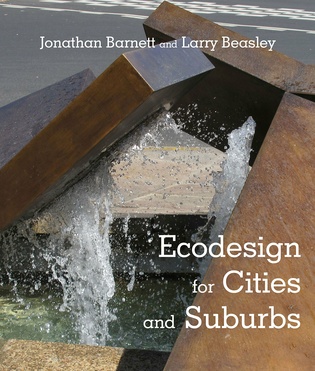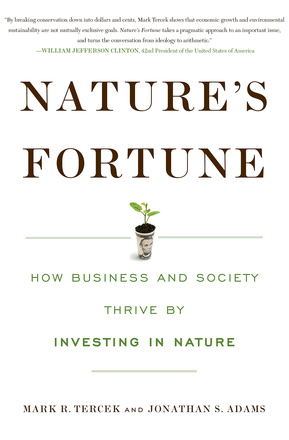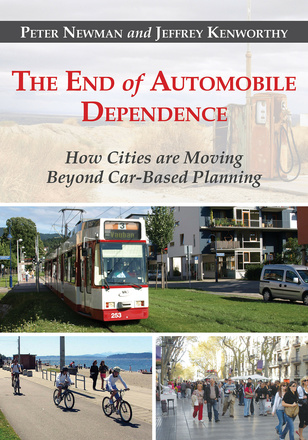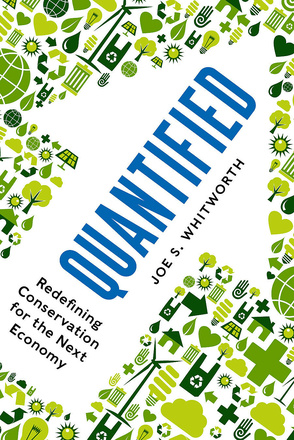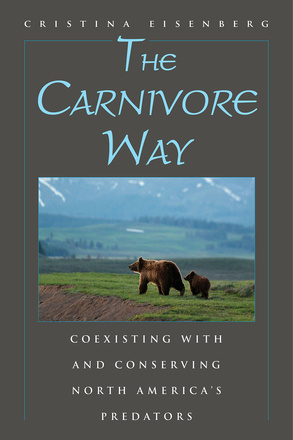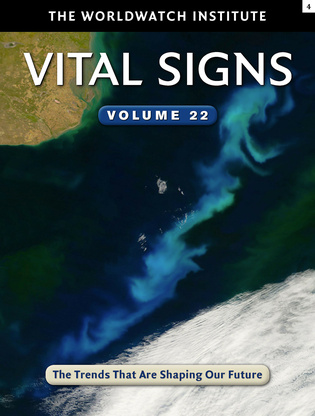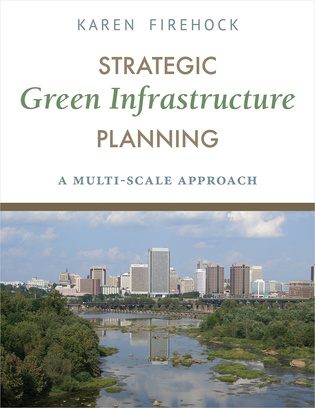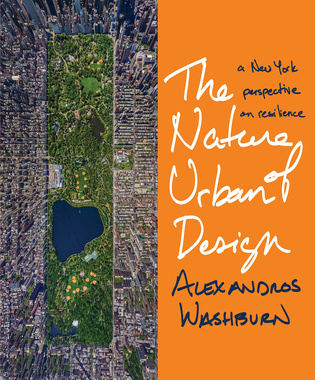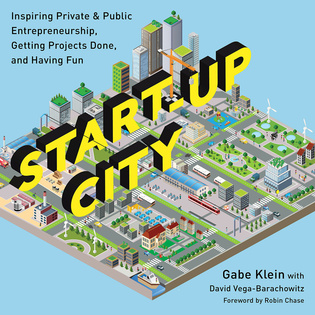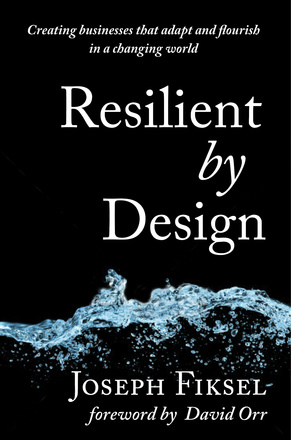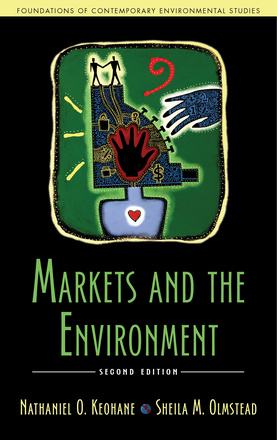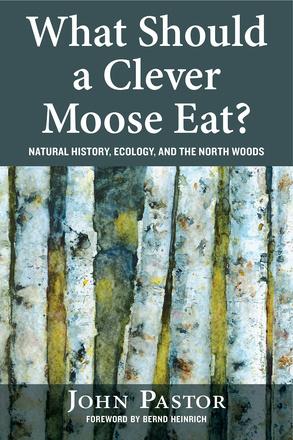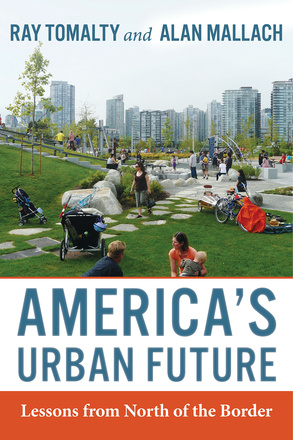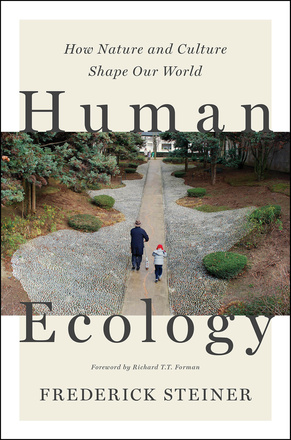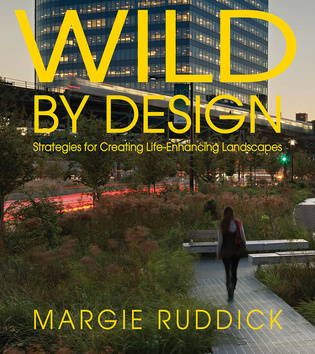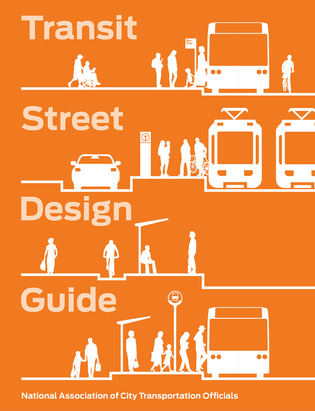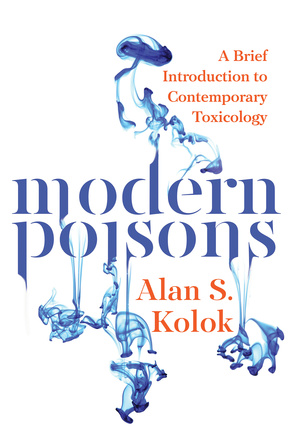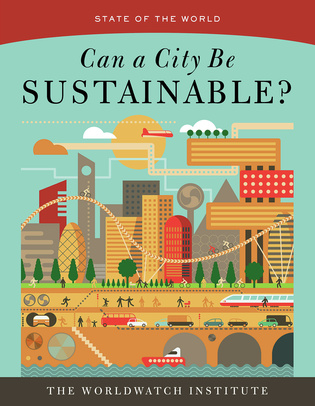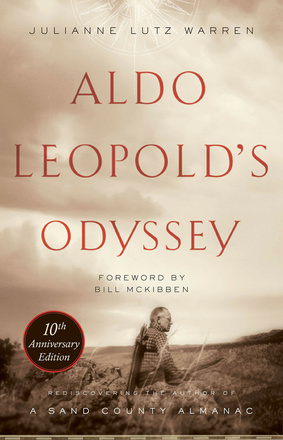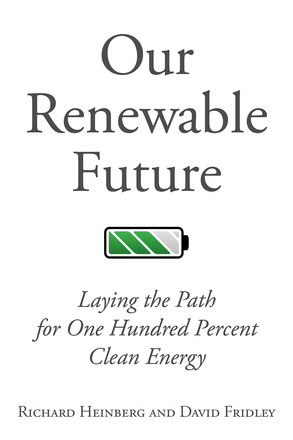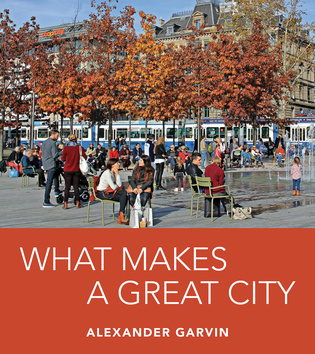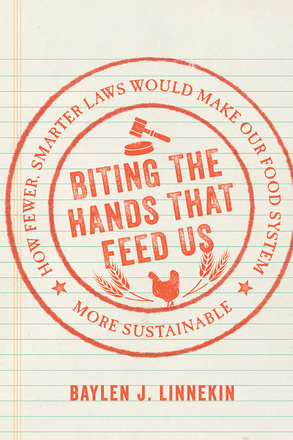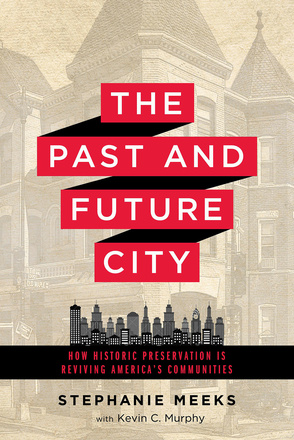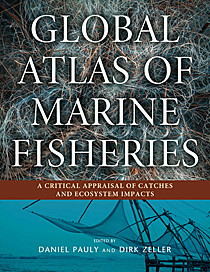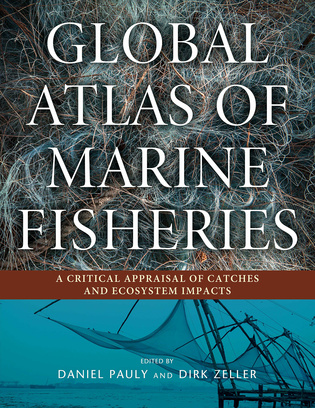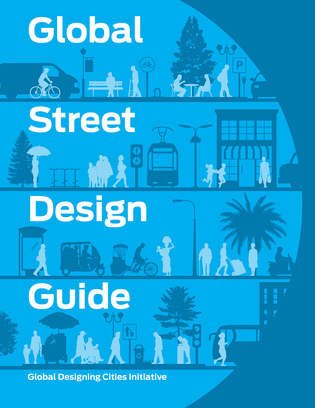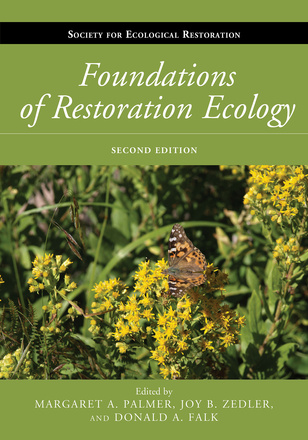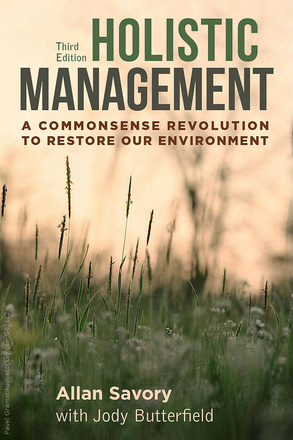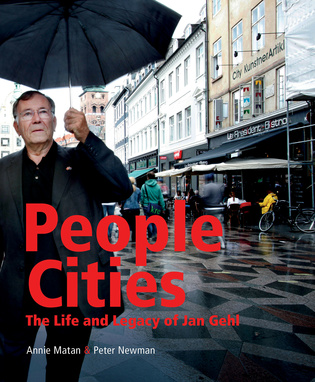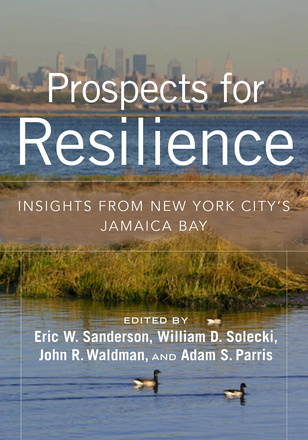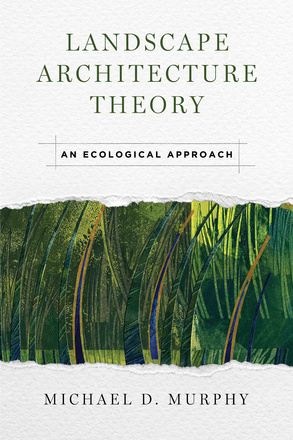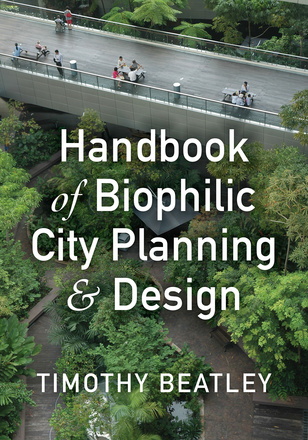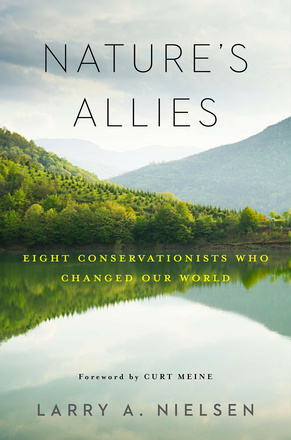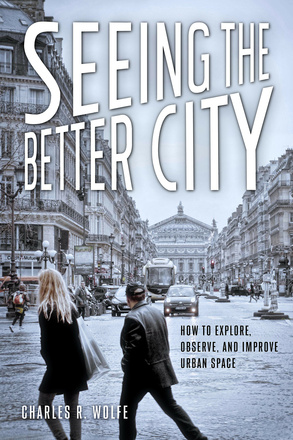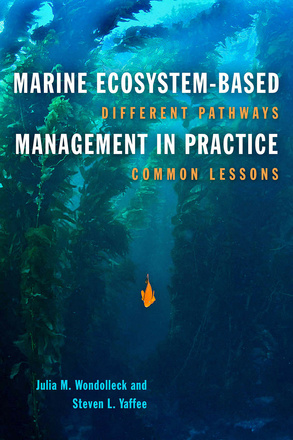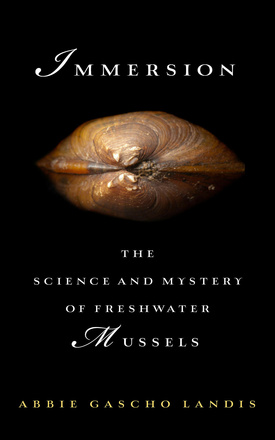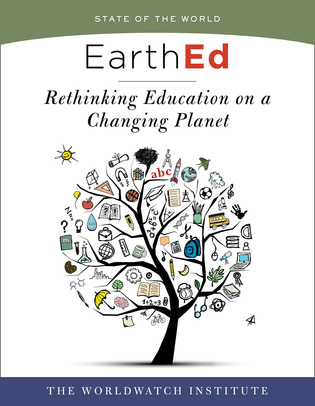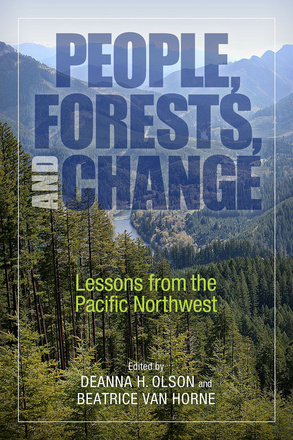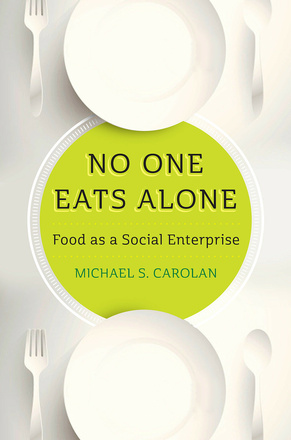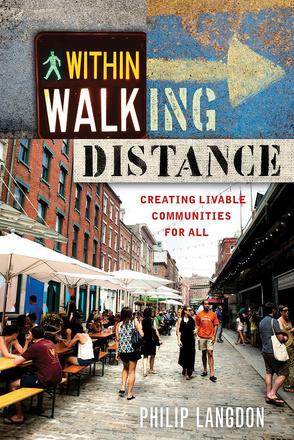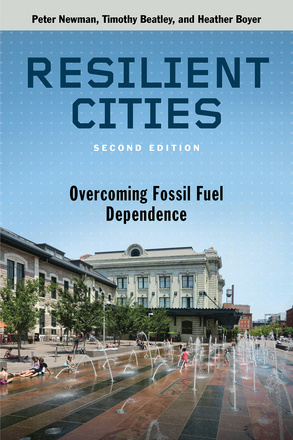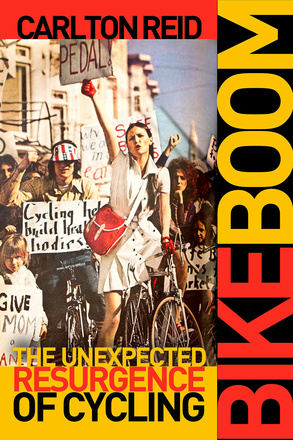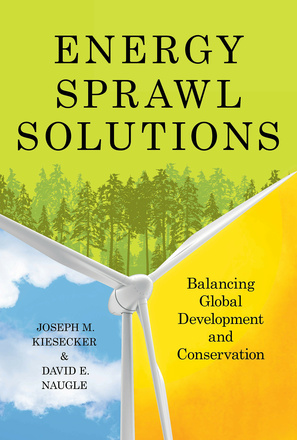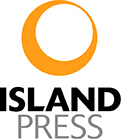
Island Press began with a simple idea: knowledge is power—the power to imagine a better future and find ways for getting us there. Founded in 1984, Island Press’ mission is to provide the best ideas and information to those seeking to understand and protect the environment and create solutions to its complex problems.
State of the World 2015
Confronting Hidden Threats to Sustainability
Artful Rainwater Design
Creative Ways to Manage Stormwater
This beautifully illustrated, comprehensive guide explains how to design creative, yet practical, landscapes that treat on-site stormwater management as an opportunity to enhance site design. Artful Rainwater Design is a must-have resource for landscape architects, urban designers, civil engineers, and architects looking to create landscapes that celebrate rain for the life-giving resource it is-- and contribute to more sustainable, healthy, and even fun, built environments.
Nature's Fortune
How Business and Society Thrive By Investing in Nature
A must-read for business leaders, CEOs, investors, and environmentalists alike, Nature’s Fortune offers an essential guide to the world’s economic—and environmental—well-being.
The End of Automobile Dependence
How Cities are Moving Beyond Car-Based Planning
This is the final volume in a trilogy by Newman and Kenworthy on automobile dependence (Cities and Automobile Dependence in 1989 and Sustainability and Cities: Overcoming Automobile Dependence in 1999). Like all good trilogies this one shows the rise of an empire, in this case that of the automobile, the peak of its power, and the decline of that empire.
Big, Wild, and Connected
Scouting an Eastern Wildway from the Everglades to Quebec
Quantified
Redefining Conservation for the Next Economy
The Carnivore Way
Coexisting with and Conserving North America's Predators
Vital Signs Volume 22
The Trends That Are Shaping Our Future
Strategic Green Infrastructure Planning
A Multi-Scale Approach
A practical guide to creating effective plans and then implementing them, Strategic Green Infrastructure Planning presents a six-step process developed by the Green Infrastructure Center in Charlottesville, Virginia. Each step, from setting goals to implementing opportunities, can be applied to a variety of scenarios, customizable to the reader's target geographical location. Chapters draw on diverse case studies, from the Sonoran Desert to Jersey City. Abundant full color maps, photographs, and illustrations complement the text.
The book is essential reading for planners, elected officials, developers, conservationists, and others interested in the creation and maintenance of open space lands and urban green infrastructure projects or promoting a healthy economy.
The Nature of Urban Design
A New York Perspective on Resilience
Throughout the book, Washburn shows how a well-designed city can be the most efficient, equitable, safe, and enriching place on earth. The Nature of Urban Design provides a framework for participating in the process of change and will inspire and inform anyone who cares about cities.
Start-Up City
Inspiring Private and Public Entrepreneurship, Getting Projects Done, and Having Fun
This book is for anyone who wants to change the way that we live in cities without waiting for the glacial pace of change in government.
Resilient by Design
Creating Businesses That Adapt and Flourish in a Changing World
Rich with case studies of organizations that are designing resilience into the very fabric of their organizations, Resilient by Design offers them a better way to adapt and thrive. Resilient by Design explains how to connect the health and viability of important external systems—stakeholders, communities, infrastructure, supply chains, and natural resources—to create innovative, dynamic organizations that will find a way to survive and prosper.
Markets and the Environment, Second Edition
What Should a Clever Moose Eat?
Natural History, Ecology, and the North Woods
America's Urban Future
Lessons from North of the Border
In America’s Urban Future, urban experts Tomalty and Mallach show how Canada, a country similar to the US in many respects, has fostered healthier urban centers and more energy- and resource-efficient suburban growth. They call for a rethinking of US public policies across those areas and look closely at what may be achievable at federal, state, and local levels in light of both the constraints and opportunities inherent in today’s political systems and economic realities.
Human Ecology
How Nature and Culture Shape Our World
Human ecology is the study of the interrelationships between humans and their environment, drawing on diverse fields from biology and geography to sociology, engineering, and architecture. Steiner admirably synthesizes these perspectives through the lens of landscape architecture, a discipline that requires its practitioners to consciously connect humans and their environments. After laying out eight principles for understanding human ecology, the book’s chapters build from the smallest scale of connection—our homes—and expand to community scales, regions, nations, and, ultimately, examine global relationships between people and nature.
Wild By Design
Strategies for Creating Life-Enhancing Landscapes
Wild by Design defines and explains the five fundamental strategies Ruddick employs, often in combination, to give life, beauty, and meaning to landscapes: Reinvention, Restoration, Conservation, Regeneration, and Expression. Drawing on her own projects—from New York City to Chengdu, China—she offers guidance on creating beautiful, healthy landscapes that successfully reconnect people with larger natural systems.
The Future of the Suburban City
Lessons from Sustaining Phoenix
The Future of the Suburban City is a realistic yet hopeful story of what is possible for any suburban city.
Transit Street Design Guide
The Transit Street Design Guide is a vital resource for every transportation planner, transit operations planner, and city traffic engineer working on making streets that move more people more efficiently and affordably.
Modern Poisons
A Brief Introduction to Contemporary Toxicology
Can a City Be Sustainable? (State of the World)
Aldo Leopold's Odyssey, Tenth Anniversary Edition
Rediscovering the Author of A Sand County Almanac
Our Renewable Future
Laying the Path for One Hundred Percent Clean Energy
The next few decades will see a profound energy transformation throughout the world, as we shift from fossil fuels to rely primarily on renewable sources like solar, wind, biomass, and geothermal power. What might a 100% renewable future look like, and what challenges might we face in the transition? In Our Renewable Future, energy expert Richard Heinberg and scientist David Fridley explore the challenges and opportunities presented by the shift to renewable energy. Beginning with a comprehensive overview of our current system, the authors survey issues of energy supply and demand in key components of society, including electricity generation, transportation, buildings, and manufacturing. The book concludes with a discussion of energy and equity and a summary of key lessons and steps forward at the individual, community, and national level. Our Renewable Future is a clear-eyed and urgent guide to the renewable energy transformation that will be a crucial resource for policymakers and energy activists.
Climate Change in Wildlands
Pioneering Approaches to Science and Management
Climate Change in Wildlands proposes a new kind of collaboration between scientists and managers—a science-derived framework and common-sense approaches for keeping parks and protected areas healthy on a rapidly changing planet.
Restoring Neighborhood Streams
Planning, Design, and Construction
What has been missing, however, is detailed guidance for restoration practitioners wanting to undertake similar urban stream restoration projects that worked with, rather than against, nature. This book presents the author’s thirty years of practical experience managing long-term stream and river restoration projects in heavily degraded urban environments. Although the case studies are local, the principles, methods, and tools are universal, and can be applied in almost any city in the world.
What Makes a Great City
What makes a great city? City planner and architect Alexander Garvin set out to answer this question by observing cities, largely in North America and Europe, with special attention to Paris, London, New York, and Vienna.
For Garvin, greatness is about what people who shape cities can do to make a city great. A great city is a dynamic, constantly changing place that residents and their leaders can reshape to satisfy their demands. Most importantly, it is about the interplay between people and public realm, and how they have interacted throughout history to create great cities.
What Makes a Great City will help readers understand that any city can be changed for the better and inspire entrepreneurs, public officials, and city residents to do it themselves.
Biting the Hands that Feed Us
How Fewer, Smarter Laws Would Make Our Food System More Sustainable
Today in the United States, laws exist at all levels of government that exacerbate problems such as food waste, hunger, inhumane livestock conditions, and disappearing fish stocks. Baylen Linnekin argues that government rules often handcuff America’s most sustainable farmers, producers, sellers, and consumers, while rewarding those whose practices are anything but sustainable. Biting the Hands that Feed Us introduces readers to the perverse consequences of many food rules, from crippling organic farms to subsidizing monocrops. Linnekin also explores what makes for a good law—often, he explains, these emphasize good outcomes over rigid processes. But he urges readers to reconsider efforts to regulate our way to a greener food system, calling instead for empowerment of those working to feed us—and themselves—sustainably.
The Past and Future City
How Historic Preservation is Reviving America's Communities
This book is for anyone who cares about cities, places, and saving America’s diverse stories in a way that will bring us together and help us better understand our past, present, and future.
Global Atlas of Marine Fisheries
A Critical Appraisal of Catches and Ecosystem Impacts
Global Atlas of Marine Fisheries
A Critical Appraisal of Catches and Ecosystem Impacts
Global Street Design Guide
This innovative guide will inspire leaders, inform practitioners, and empower communities to realize the potential in their public space networks. It will help cities unlock the potential of streets as safe, accessible, and economically sustainable places.
Foundations of Restoration Ecology
Foundations of Restoration Ecology, Second Edition, has been dramatically updated to reflect new research in restoration ecology, including new sections on specific ecosystem processes, including hydrology, nutrient dynamics, and carbon. Case studies describe real-life restoration scenarios in North and South America, Europe, and Australia. Lists at the end of each chapter summarize new theory and practical applications.
Written by acclaimed researchers in the field, this book provides practitioners as well as graduate and undergraduate students with a solid grounding in the newest advances in ecological science and theory.
Holistic Management, Third Edition
A Commonsense Revolution to Restore Our Environment
In this third edition of Holistic Management, Savory and coauthor Jody Butterfield update and streamline guidelines to reverse desertification, halt climate change, retain biodiversity, and eliminate causes of global human impoverishment. Reorganized chapters streamline concepts and new color photographs showcase examples of land restored by properly managed livestock.
Holistic Management is written for new generations of ranchers, farmers, pastoralists, eco- and social entrepreneurs, and government agencies, NGOs, and development professionals working to address global environmental and social degradation.
Design Professional's Guide to Zero Net Energy Buildings
People Cities
The Life and Legacy of Jan Gehl
People Cities tells the inside story of how Gehl learned to study urban spaces and implement his people-centered approach in car-dominated cities. It discusses the work, theory, life, and influence of Gehl from the perspective of those who have worked with him in cities across the globe. It will inspire anyone who wants to create vibrant, human-scale cities and understand the ideas and work of the architect who has most influenced urban design.
Prospects for Resilience
Insights from New York City's Jamaica Bay
Ranging from a framework for understanding resilience practice in urban watersheds to essential tools for research and practice, Prospects for Resilience is filled with information and advice for scientists, urban planners, students, and others who are working to create more resilient cities that work with, not against, nature.
Landscape Architecture Theory
An Ecological Approach
Drawing on his extensive career in teaching and practice, Michael Murphy begins with an examination of influences on landscape architecture. He then delves into systems and procedural theory, while making connections to ecosystem and human factors, the design process, and more. He concludes by showing how a strong theoretical understanding can be applied to practical, every-day decision making and design work to create more holistic, sustainable, and creative landscapes.
Handbook of Biophilic City Planning & Design
The Handbook of Biophilic City Planning & Design offers practical advice and inspiration for ensuring that nature in the city is more than infrastructure—that it also creates an emotional connection to the earth and promotes well-being among urban residents. Divided into six parts, the Handbook introduces key ideas about biophilic urbanism, highlights urban biophilic innovations in more than a dozen global cities, and concludes with lessons and resources for advancing urban biophilia.
As the most comprehensive reference on the emerging field of biophilic urbanism, the Handbook is essential reading for students and practitioners looking to place nature at the core of their planning and design ideas.
Nature's Allies
Eight Conservationists Who Changed Our World
Seeing the Better City
How to Explore, Observe, and Improve Urban Space
Through clear prose and vibrant photographs, Charles Wolfe shows how to catalog the influences of urban form, public transportation, and other basic city elements. He then shares insights into how to use recorded observations to contribute to better planning and design decisions. Wolfe calls this the “urban diary” approach, and highlights how the perspective of the observer is key to understanding the dynamics of urban space. He concludes by offering guidance on how to use carefully recorded and organized observations as a tool to create change in urban planning conversations and practice.
Marine Ecosystem-Based Management in Practice
Different Pathways, Common Lessons
Marine Ecosystem-Based Management in Practice is the first practical guide for the marine conservation realm. In a unique collection of case studies, the authors showcase successful collaborative approaches to ecosystem-based management. This book offers a hopeful message to policy makers, managers, practitioners, and students who will find this an indispensable guide to field-tested, replicable marine conservation management practices that work.
Immersion
The Science and Mystery of Freshwater Mussels
"Eloquent treatise...Landis's book is as much call to action as paean to mesmerizing molluscs." —Nature
"Rich, accurate, and moving." —New Scientist
"A lyrical love letter to the imperiled freshwater mussel." —Science
Abbie Gascho Landis first fell for freshwater mussels while pregnant and submerged in an Alabama creek, watching a female filter the water through her body while her gills bulged with offspring. In that moment of connection, Landis became a mussel groupie, obsessed with learning more about the creatures’ hidden lives. She isn’t the only fanatic; the shy mollusks, so vital to the health of rivers around the world, have a way of inspiring unusual devotion. In Immersion: The Science and Mystery of Freshwater Mussels, Landis brings readers to a hotbed of mussel diversity, the American Southeast, to seek mussels where they eat, procreate, and, too often, perish. Landis shares her journey from perilous river surveys to dry streambeds and into laboratories where endangered mussels are raised one life at a time.
Mussels have much to teach us about the health of the watershed if we step into the creek and take a closer look at their lives. In turns joyful and sobering, Immersion is an invitation to see rivers from a mussel’s perspective, a celebration of the wild lives visible to those who learn to search.
EarthEd (State of the World)
Rethinking Education on a Changing Planet
People, Forests, and Change
Lessons from the Pacific Northwest
People, Forests, and Change: Lessons from the Pacific Northwest, considers the nature of forests in flux and how to balance the needs of forests and rural communities. In the US northwest, forest ecosystem management has been underway for two decades, and key lessons are emerging. This book brings together ideas for policy makers, managers, students, and conservationists seeking to manage forests conscientiously and assure their long-term viability.
No One Eats Alone
Food as a Social Enterprise
No One Eats Alone argues that human connections are essential for creating a healthy, equitable, and sustainable food system. Michael Carolan shares the stories of individuals who are working to become citizens first and consumers second.
Within Walking Distance
Creating Livable Communities for All
Resilient Cities, Second Edition
Overcoming Fossil Fuel Dependence
Resilient Cities, Second Edition reveals how cities around the world are working to become more resilient. The authors offer stories, insights, and inspiration for urban planners, policymakers, and professionals interested in creating more sustainable, equitable, and, eventually, regenerative cities. Most importantly, the book is about overcoming fear and generating hope in our cities. The challenge of resilient cities is to claim a different future that helps us regenerate the whole planet.
Bike Boom
The Unexpected Resurgence of Cycling
In Bike Boom, journalist Carlton Reid uses history to shine a spotlight on the present and demonstrates how bicycling has the potential to grow even further, if the right measures are put in place by the politicians and planners of today and tomorrow. He explores the benefits and challenges of cycling, the roles of infrastructure and advocacy, and what we can learn from cities that have successfully supported and encouraged bike booms. In this entertaining and thought-provoking book, Reid sets out to discover what we can learn from the history of bike “booms.”
Energy Sprawl Solutions
Balancing Global Development and Conservation
This contributed volume features case studies from countries around the world, each describing a different energy sector and the way they have successfully maximized biodiversity protection. This book provides a needed guide for elected officials, industry representatives, NGOs and community groups who have a stake in sustainable energy-development planning.


